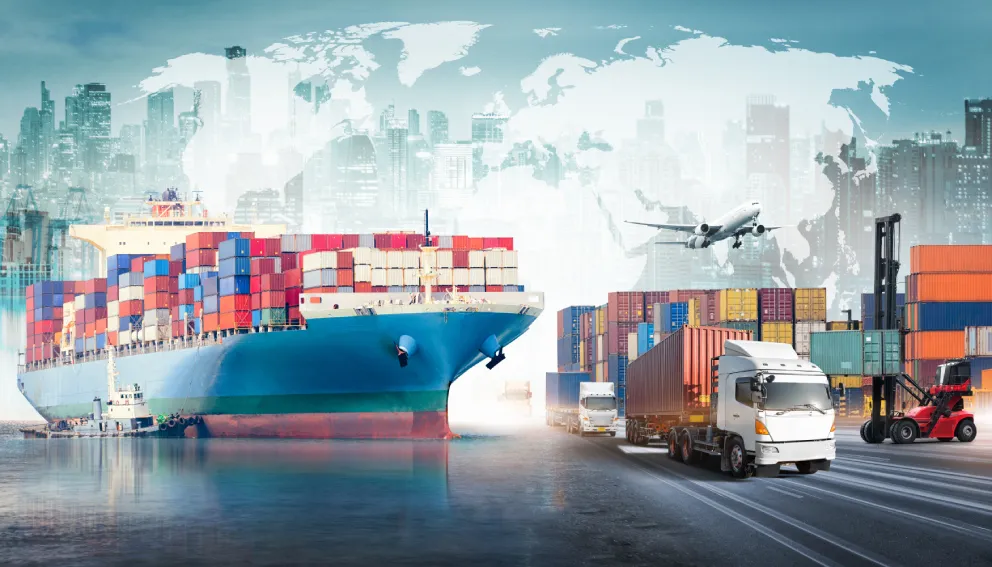Security in international freight transport is an essential element . Security measures are both physical, to safeguard the integrity of goods and the health of the people handling them, and regulatory, ensuring compliance with laws governing trade routes and cargo management based on its characteristics.
The various elements involved in international freight transport security create a complex scenario that requires coordination and strict monitoring to ensure smooth operations and confidence in the system.
The latest “Global Trade Update” (December 2024), published by the United Nations Conference on Trade and Development (UNCTAD), forecasted a record-high closing of the year at $33 trillion, a 3.3% increase from 2023. Such a significant business volume results from millions of transactions and an immense number of shipments across seas, airspace, roads, and railways worldwide, which could not be successfully completed without guaranteed security in international freight transport.

What Are the Key Elements of Security in International Freight Transport?
At Startrans, as experts in the comprehensive management of international freight transport, we emphasize that before initiating a shipment process, all factors must be considered, including, of course, those related to the security.
We are part of the leading international transport organizations and hold certifications that accredit us as authorized agents in the comprehensive logistics security chain, ensuring compliance with international quality standards in our processes, products, and services.
Risk Assessment
Regarding international freight transport security, the first step is to assess the potential risks of each shipping option to determine the most optimal choice for each specific case. Factors to consider include the destination, type of cargo, possible routes, means of transport, and any other elements involved in the operation.
Implementation of Preventive Measures
Cargo loading and unloading procedures are standardized, occupational safety measures are determined by legislation, and technology devices are used to track shipments based on their type. This applies, for example, to temperature-controlled food, pharmaceutical products, and hazardous goods. Ensuring their integrity is essential.
Protection During Transit
When discussing security in international freight transport, one of the first concerns is measures designed to prevent theft, loss, and cargo deterioration. Technologies that ensure product traceability and integrity, such as GPS tracking or RFID, are fundamental tools.
Transport Regulations
The main guarantee of security in international freight transport is the broad range of regulations and laws. These create a complex and evolving framework that must be well understood to avoid issues arising from non-compliance, but also to leverage the advantages of adhering to the regulatory framework of each territory and each type of shipment.
A crucial regulatory framework for international transport operations is the Incoterms, a set of rules established and revised by the International Chamber of Commerce (ICC) to define the rights and obligations of the parties involved in an international trade transaction.
If you need to arrange an international freight shipment and want to ensure that the operation is carried out optimally and securely, contact Startrans for expert advice.